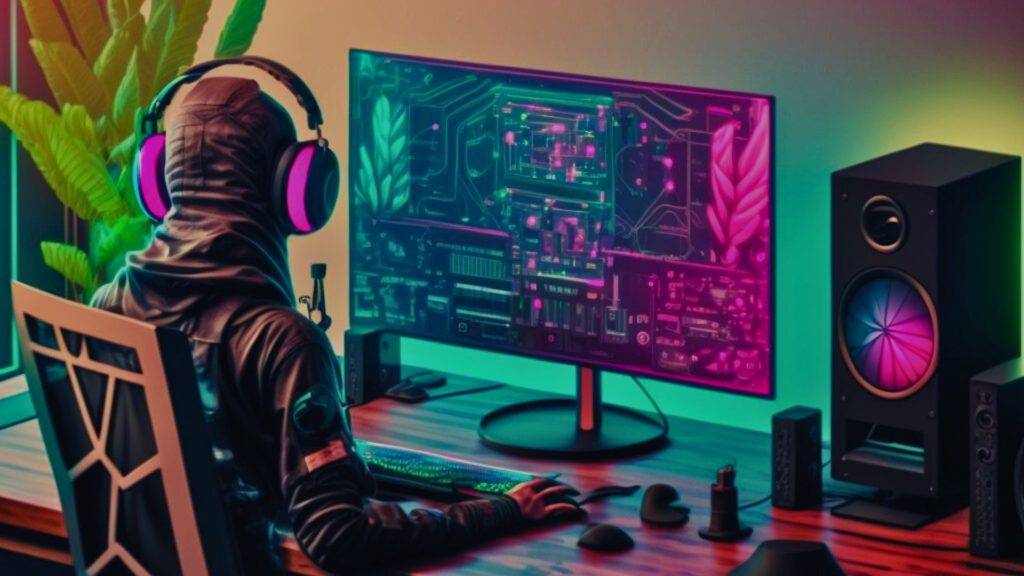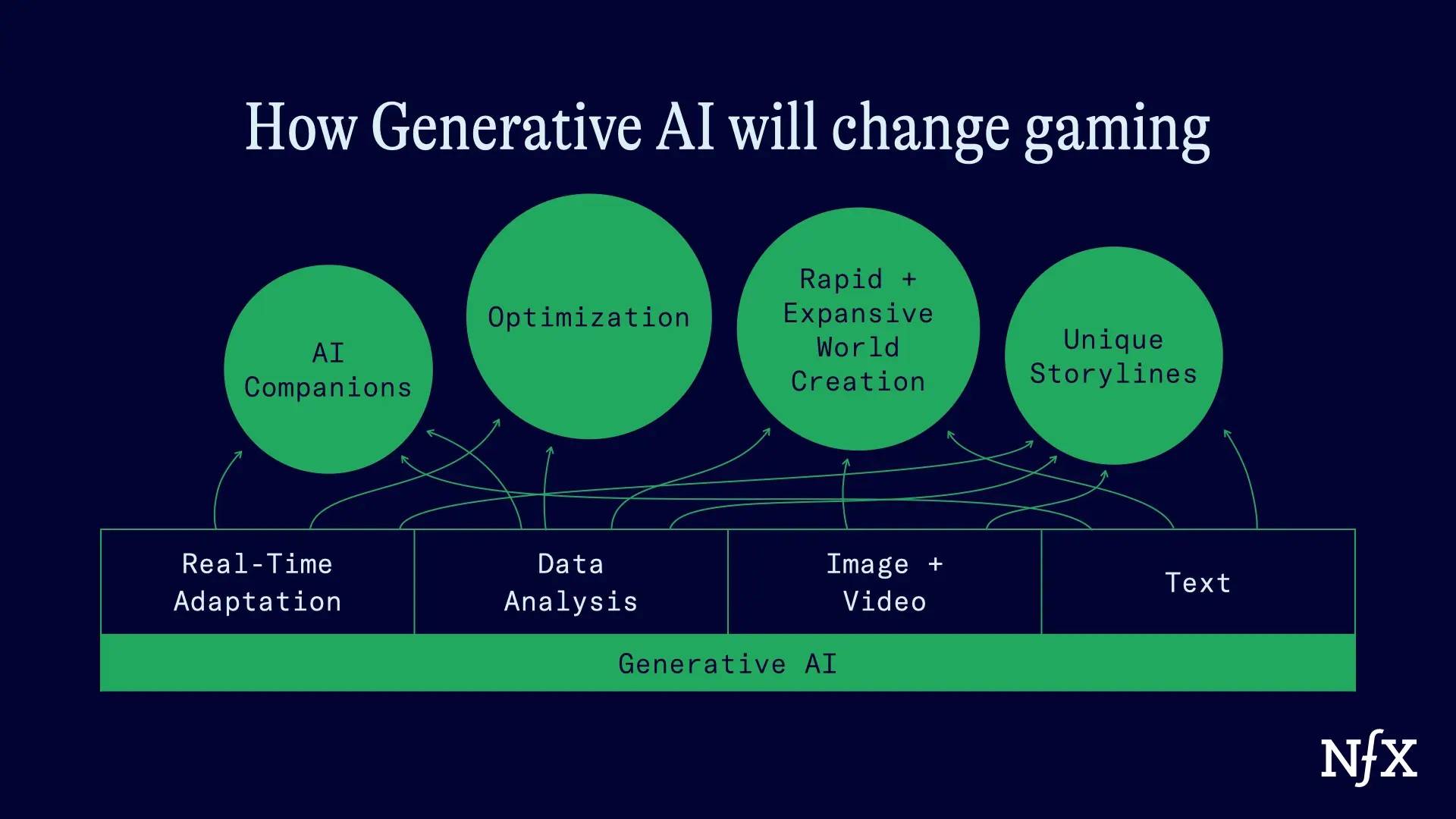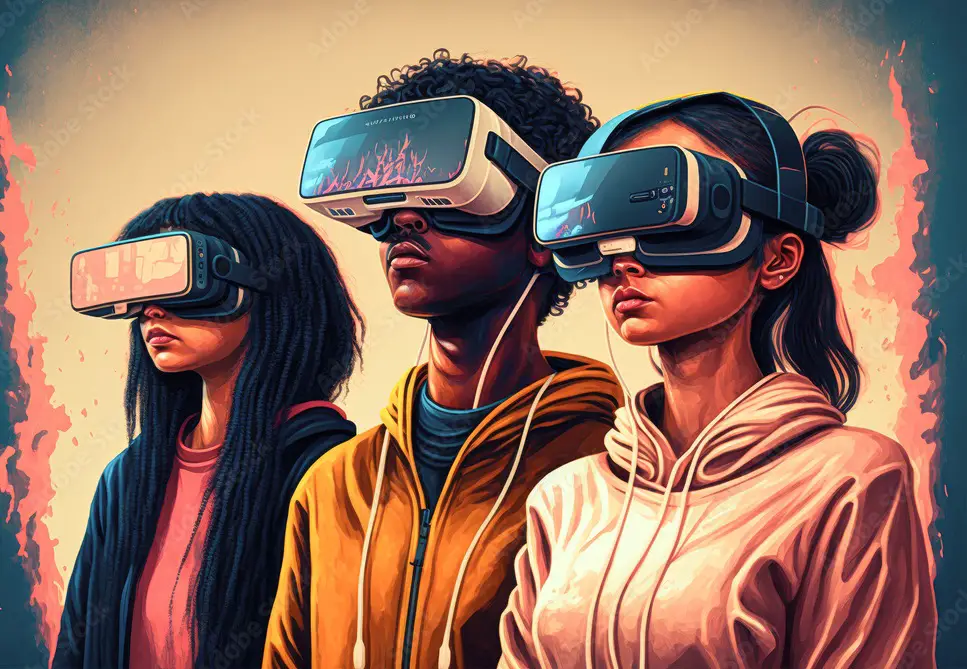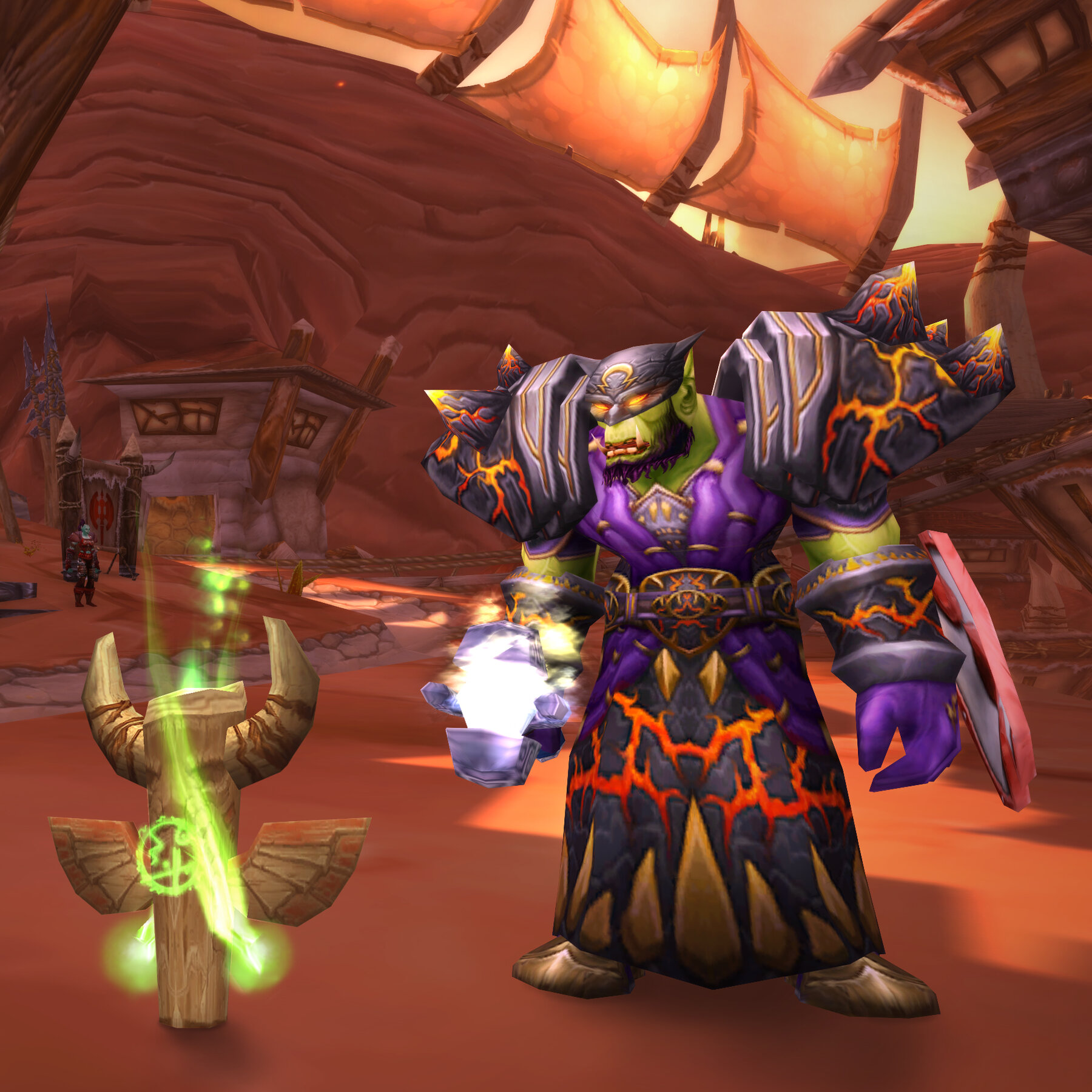The rise of artificial intelligence (AI) has been phenomenal. Firstly, they were mere chatbots that provide companions. Today, they have grown into more powerful tools that can do everything from generating images and strings of codes. One of the biggest questions among gamers has been what are the pros and cons of generative AI in the game industry.

Like every tool, generative AI has the potential for good and evil. It all depends on the intent of the user. For example, creating games involves a lot of hard and often repetitive work. Developers invest a lot in creating realistic worlds and try to populate them with humans, plants, and animals to make them come alive.
The prospect of autonomously creating some of the game world elements using generative AI makes the tool enticing to developers. They can hands off some of the boring jobs to AI and focus on the main aspects of the game. Generative AI also makes it easier for a small team of indie developers to create massive game maps.
Believe it or not, generative AI tools are already in use in the gaming industry today. However, the focus at the moment is usually to deliver richer, more interactive gaming environments and to sharpen the intelligence of non-playable characters (NPC).
There are lots of benefits that generative AI can offer such that its current use in the gaming industry feels like just scratching the surface. But, why is there divided opinion on the use of generative AI in the gaming industry? Below are the pros and cons of the use of generative AI in the game industry.
Pros of the use of generative AI in the game industry

Whenever the use of generative AI is mentioned, the first thought is usually how it will ease the job of developers—but there is more. It has the potential to revolutionize the entire gaming experience for both the developers and the consumers. Below are key pros of the use of generative AI in the game industry that goes beyond faster game development.
1. Building bigger and better worlds
Developers often restrict the size of their game worlds to their budget. The bigger the map, the more resources would be required to fill it up. Rockstar Games had to put together a team of about 1,000 people to produce Read Dead Redemption over a five-year period. Undoubtedly, not every studio has the resources to pull that off.
Also, Ubisoft has a fondness for creating massive game worlds. However, some of their games with such expansive spaces are often slammed for feeling too empty. Creating large words is one thing but giving it life is another kettle of fish.
In both instances, developers can leverage the power of generative AI tools to expand maps and bring life to them without overshooting their budget. Although NPCs are not controlled by gamers, their presence and chatter bring life to the world. With generative AI tools, developers can hand off the role of NPCs to AI and focus on the main characters.
Notwithstanding that NPCs are repetitive characters, regenerative AI tools can lower the frequency of repetition of NPCs which further makes the world more believable. Faster development time is one of the biggest benefits of the use of generative AI tools in the game industry.
2. Creating a fresh experience for returning gamers
The use of generative AI in the game industry can bring unique experiences to gamers. Developers want gamers to stay in their games for as long as possible. However, when most players finish the story, there is usually no urge to get back in.
Developers have tried to lure players back into play after they complete the story mode using Game+ (Game Plus) mode. In most games, this mode allows players to get back into the game retaining all the equipment they had acquired from the main story.
Dead Space remake introduced the concept of an AI director. What the team did was use AI to alter the experience of the game making it harder for gamers to predict what comes next. For example, you can walk through a room in one playthrough and the room is lighted and the next, the room is dark.
The same with the random spawning of necromorphs. Let’s face it, games become boring when they become too predictive. Gamers are always yearning for surprises and a good challenge. With this concept, gamers can play a game several times and each experience will be fresh.
No Man’s Sky makes use of generative AI to create a virtual galaxy with millions of planets while ensuring that each of the planets has unique weather, terrain, and ecosystem. Games like Minecraft also use AI to alter the world.
3. Better multiplayer gaming experience
Another area where generative AI can come in handy is in online or multiplayer games. In some online or multiplayer games, a player may log in and wait for minutes or hours because there are not enough players logged in to start the game.
In such a situation where there are not enough live players, the game can be designed to spawn AI players to complete the designated number to get the game started so that players don’t have to wait endlessly to start a game.
In Call of Duty: Mobile, there is a ‘Practice vs. AI’ mode that allows gamers to sharpen their skills and techniques by playing against bots. It is essentially a learning process. This can be a useful tool for lovers of fighting games or racing sims that may want to test their skills in live esports tournaments. Playing against bots can become a training ground for preparing for live tournaments.
4. Enhance the intelligence of NPCs
In some games, NPCs are nothing but lifeless characters that roam the street without any form of awareness of their surroundings. For example, in some games, a heated shootout will be going on and NPCs will walk by as if nothing is happening.
With generative AI, developers can create NPCs that are more aware of their surroundings and would react to the incidents happening around them. Considering the vast number of NPCs, pulling this off without the help of any tool can be a cumbersome task. NPCs that are aware of their surroundings will make the game more engaging and dynamic.
5. Larger number of games released annually
Armed with more generative AI tools, a small team of developers can start a game studio. A higher number of game studios also mean a larger number of games released annually. It also has the potential of solving one of the biggest problems in the gaming industry; delays.
With generative AI tools, developers can keep testing time at the minimum, speed up the creation of game prototypes, and effect any enhancements on the fly. Gamers hate it when games are delayed and the use of generative AI in the game industry can help to put an end to the era of game delays
Cons of the use of generative AI in the game industry

Although the potential benefits of generative AI in the game industry are enormous, it also comes with significant risks too. It is the potential risks to the use of AI that inspired the European Union’s AI Act, the first comprehensive rule for the AI industry. Below are some of the risks to the use of generative AI in the game industry.
1. Fewer game developers would be required
Arguably the biggest anxiety with the rise of generative AI in the game industry is that fewer developers would be required to make larger games. That means a large number of employees will be swept back into the labor market. In simple terms, more game developers will become jobless. Studios—especially smaller ones—will always choose generative content over hundreds of lines of code.
In addition to that, developers will be forced to acquire generative AI skills to stand a chance of getting a job—one more headache for those already struggling to get or perfect their skills. Therefore, there is growing advocacy to establish best practices that will ensure that developers are not replaced by generative AI systems.
2. It creates a new copyright issue
There is also the possibility that an AI can take content from one developer without permission and use it to generate content for another developer. If unchecked, it may get to a point where different games will start to look similar which will greatly ruin the experience for players who want to see something fresh.
It is important for generative AI creators to bear this in mind as they continue to advance their systems.
3. Generative AI can ruin the playing experience
Those that argue that generative AI cannot replace human developers back it up with the fact that the majority of generative AI systems on the market cannot guarantee 100% efficiency all the time. NPCs controlled by AI can go overboard and affect the playing experience.
For example, in cases where the number and rate of enemy spawns are controlled by AI, gamers may experience a spatial number of enemies at some point and too many enemies at other points in a seemingly unregulated manner.
Julian Togelius, the co-director of the NYU Game Innovation Lab explained that generative AI can work in games like No Man’s Sky for the creation of planets “because the content doesn’t really need to function: It doesn’t have functionality constraints”.
Gaming studios are already experimenting with generative AI

Blizzard Entertainment is one of the early adopters of generative AI. Fascinated by the potential of generative AI, the company has trained an image generator specifically for their hit titles. By feeding game assets like the macabre dungeons of Diablo, combative orcs of World of Warcraft, and the heroes of Overwatch into generative systems, Blizzard has created concept art for new ideas.
Allen Adham, Blizzard’s chief design officer informed employers about the idea of using generative AI in April 2023. “Prepare to be amazed, we are on the brink of a major evolution in how we build and manage our games,” read part of the email Adham sent to employees.
Unity, the software company that has become the backbone of about 70% of mobile games wants to deploy generative AI in games. The company’s CEO John Riccitiello believes it will drive 10X growth in gaming to the 2D to 3D transition, or the rise of mobile in gaming.
“We’re about to find out what happens when we make these worlds fully alive in terms of how it feels to the player. I can’t wait,” Riccitiello said in a Forbes report.
Earlier this year, Ubisoft unveiled its Ghostwriter AI tool which it says would cut down the amount of time game writers spent in generating dialogues for NPCs. There is a lot of hype about generative AI in the game industry at the moment and it has come with a certain level of anxiety too.
However, Will Bedingfield of Wired believes that the hype around regenerative AI is reminiscent of the hype experienced with crypto, metaverse, and Web3. Bedingfield believes it is still a while before games generated purely from machines will be worth playing.
Does the rise of generative AI in the game industry excite or scare you? Share your thoughts in the comment box below.
Remember to share and bookmark this website to stay up to date on all the hottest news in the gaming industry.



